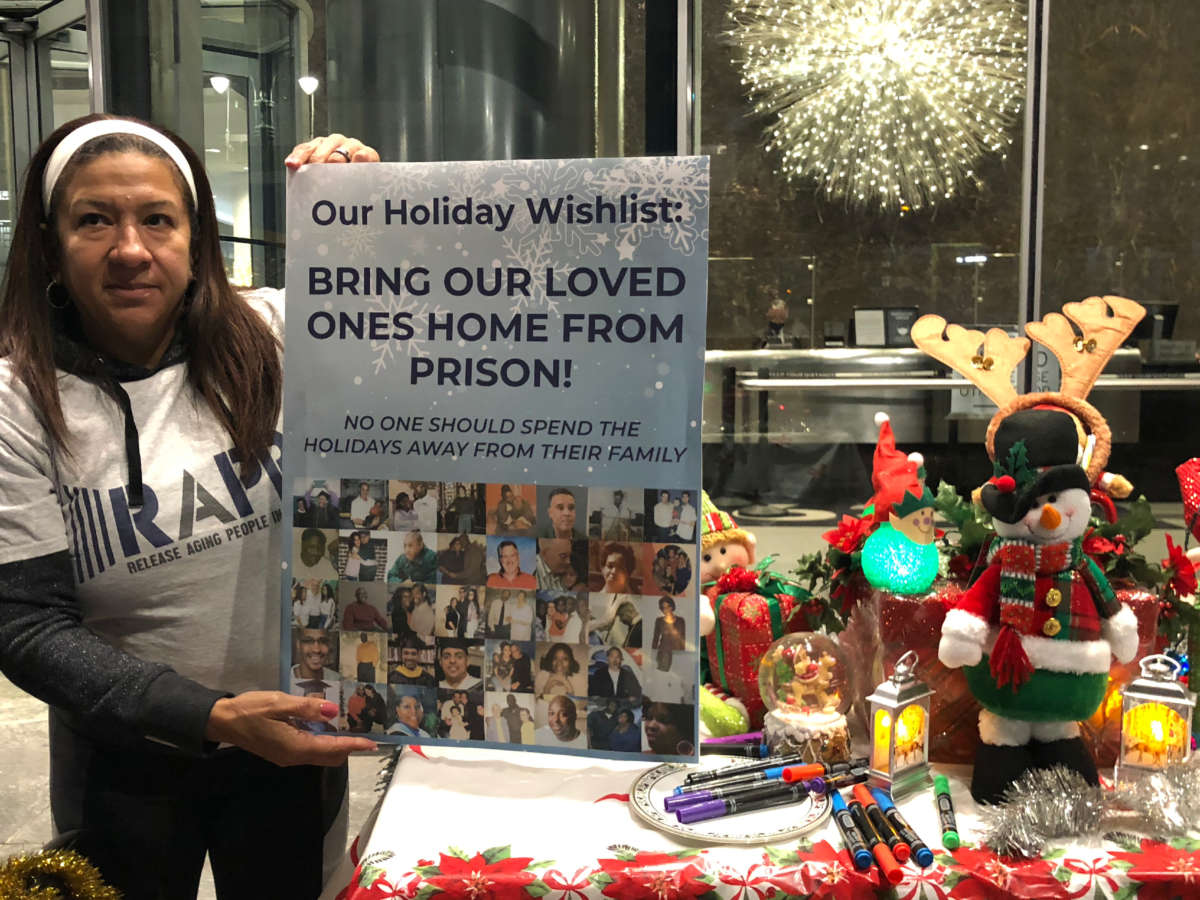Truthout is a vital news source and a living history of political struggle. If you think our work is valuable, support us with a donation of any size.
When she was 8 years old, Bryanna Rose had one item on her Christmas wish list — for her father, Jose Colon, to come home.
Ten years later, 18-year-old Bryanna is still waiting. “What would it mean for him to come home now? It would mean the wish I had asked for would come true. It would make me happy now, it would make my younger self really happy, and it would make us whole as a family,” she told Truthout.
On December 14, Bryanna watched as her mother, Janette Colon, emceed a rally outside the office of New York Gov. Kathy Hochul, calling upon her to grant clemency to Jose and hundreds of others who had transformed their lives while incarcerated.
In many states, including New York, governors have the power to grant clemency as a way of correcting excessive sentences or recognizing a person’s self-rehabilitation during their imprisonment. The president also has the power to grant clemency to those serving federal sentences.
Clemency takes two forms. A pardon, typically granted after imprisonment, expunges the conviction, removing threats of deportation and other barriers to establishing a post-prison life. A commutation reduces a person’s prison sentence, allowing them to appear before the parole board or releasing them altogether. During the COVID-19 pandemic, advocates and family members called upon governors to utilize their clemency powers to release people, particularly those vulnerable to COVID-19.
“I Feel Like I’m Inflating a Balloon”
At age 17, Jose Colon and another teenager decided to break into a Bronx apartment to steal jewelry. During the robbery, Colon shot and killed the two inhabitants. He was sentenced to two consecutive 15-to-life sentences; he must serve at least 30 years before he can appear before the parole board.
Jose and Janette Colon initially met as teenagers at a bowl-a-thon. Then came Colon’s robbery-turned-murder and imprisonment. Janette followed Jose’s case through the news though the two didn’t reconnect for years. When they did, sparks flew and, despite his lengthy sentence, they soon became a couple.
Janette notes that her husband has matured from an impulsive teenager to a mature 40-year-old who has helped parent Bryanna. He also wants to help other young people avoid the mistakes he made, designing a cognitive behavioral therapy course called I.M.O.K. (If Mother Only Knew) to help teens identify trauma and avoid going down similar pathways.
Colon submitted his application for clemency in 2019, four years after then-Gov. Andrew Cuomo announced a new Executive Clemency Bureau which would identify state prisoners who might be worthy of commutation. Thousands applied but, by the time he resigned in 2021, Cuomo had granted commutations to only 41 people. His replacement, Kathy Hochul, has only granted one commutation to Roger Cole, who has served over 30 years of an 85-to-100 years under the now-repealed Rockefeller Drug Laws. He will be deported to Jamaica upon his release from prison.
“I try not to think about it because I feel like I’m inflating a balloon and then it’s going to deflate. I try not to think about it and live day by day,” said Janette. While she tries not to get her hopes up, she is working toward not only his release, but that of hundreds of others in prison, advocating with the Release Aging People in Prison campaign to press for commutations as well as for laws expanding parole eligibility.
For 5,200 People Serving Life Without Parole, Clemency Builds Hope
In California, Joseph Navarrete is one of more than 5,200 people serving life without parole. In February 1994, Navarrete, then age 26, shot and killed two people. He was sentenced to life without parole.
Now age 54, Navarrete and his wife Yolanda both state that he is a far different person than he was half a lifetime ago. Without the governor’s intervention, however, he may never have a chance to convince the parole board that he merits a second chance.
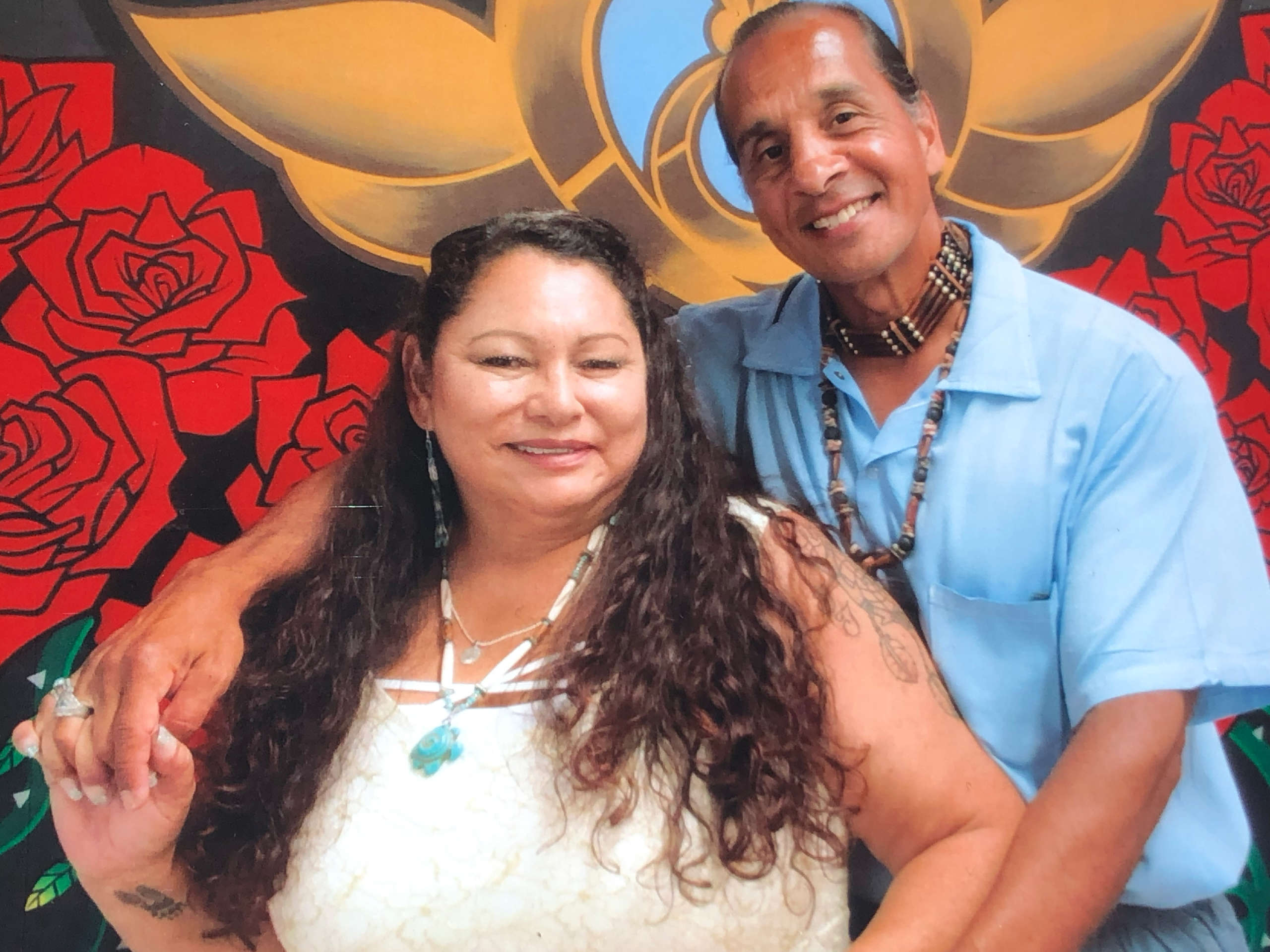
In the 1990s, Yolanda told Truthout, Navarrete was addicted to methamphetamine, cocaine, pills and alcohol. He had already endured a lifetime of childhood abuse — first from his biological father and, after his mother fled that relationship and moved from Arizona to California, from his stepfather. By the time he was 14, he was drinking and experimenting with drugs; the latter resulted in his mother kicking him out of the house. He moved in with his older brother, who had been kicked out for drugs the previous year, and was soon using more frequently. To support his habit, he began dealing drugs. He married, then divorced, losing custody of his son.
The couple dated briefly in junior high in the 1980s. In high school, they went their separate ways. “He ran with the sex, drugs, rock n’ roll crowd,” Yolanda recalled. She, on the other hand, wasn’t even allowed to attend afterschool activities.
The two reconnected in 2012 shortly after Yolanda’s divorce. They began corresponding and, that July, on the anniversary of her previous marriage, Yolanda drove to Pelican Bay State Prison to visit him. “When I saw him, all the magnets came back,” she recalled. “It was like there was no time lost.”
Navarrete was no longer the wild child from high school. While in prison, he had stopped using drugs and alcohol, attending and then facilitating Alcoholics Anonymous and Narcotics Anonymous meetings. He had connected with his Apache heritage and now leads the prison’s Native American sweat ceremonies. “I am no longer that person addicted to anger, drugs and alcohol,” Navarrete wrote in a statement from prison. “I am proud to say for the last 25 years I have been leading my life in Sobriety, honesty and integrity.”
Outside of prison, Yolanda connected with the California Coalition for Women Prisoners and the Ella Baker Center, both of which work with incarcerated people and their family members on advocacy and legislation. She was paired with Ny Nourn, who had initially been sentenced to life without parole, but later won a resentencing, making her parole-eligible. (Nourn was granted a pardon in 2020, removing the threat of deportation, and is now co-director of the Asian Prisoner Support Committee.) Yolanda met wives of others serving life without parole and learned how to advocate, not just on behalf of Navarrete, but thousands of others serving similar sentences. “A fire was lit within me,” she recalled. “I realized that families’ stories matter. It makes these bills not just black and white; it makes them alive.” She joined the Drop LWOP Coalition and has been advocating not only for her husband, but for the thousands of others sentenced to what she and others call “a living death.”
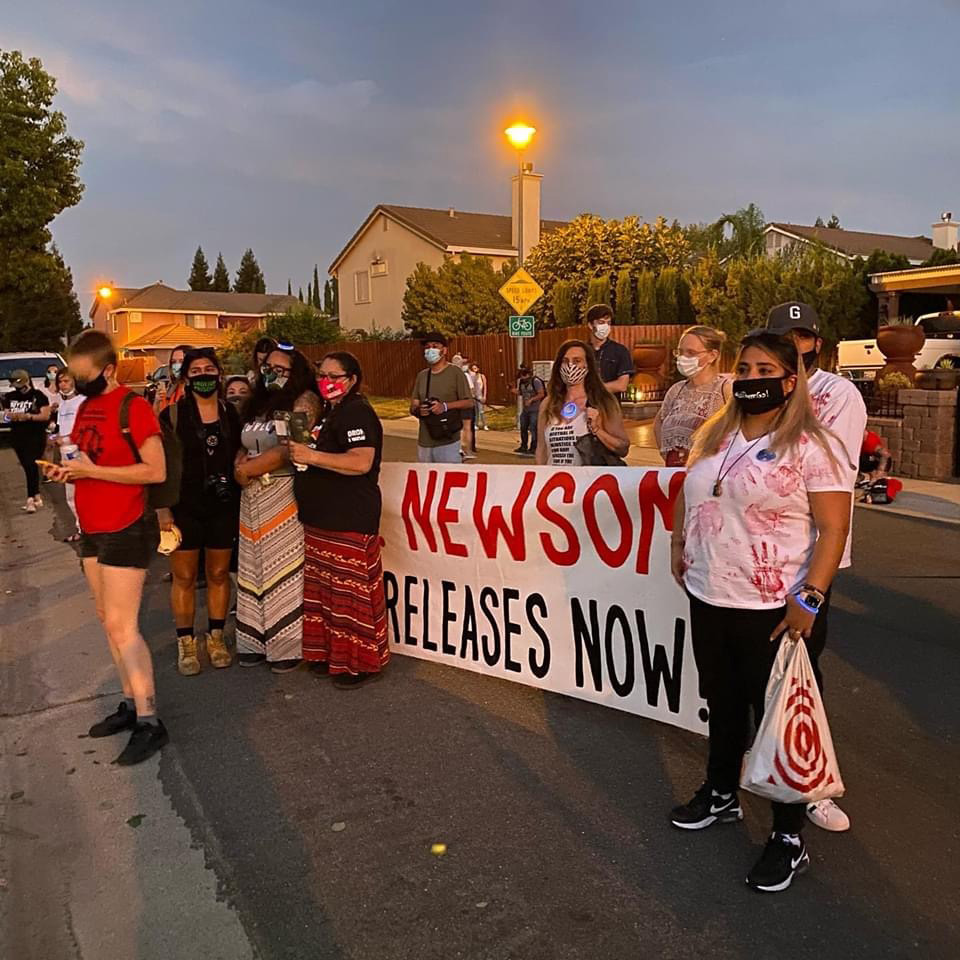
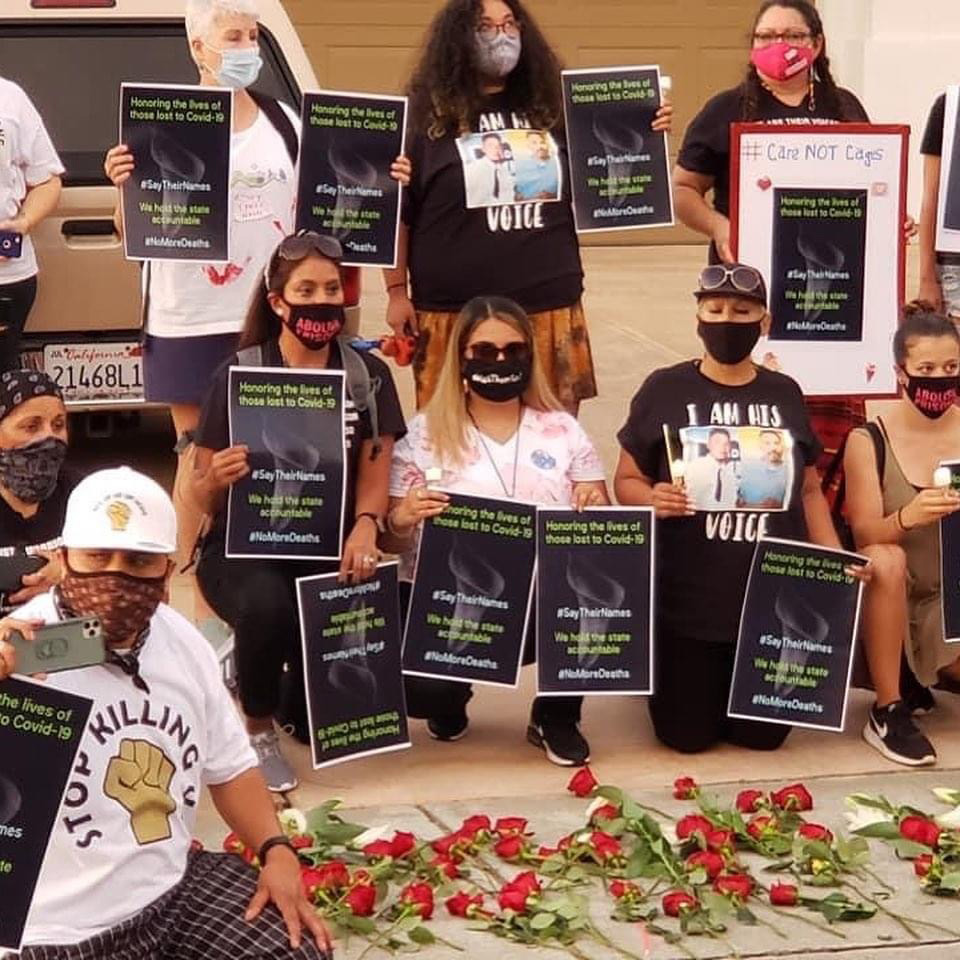
Navarrete filed for commutation in 2018. Brown ultimately granted 281 commutations — 147 of which were to people serving life without parole. Navarrete was not one of them.
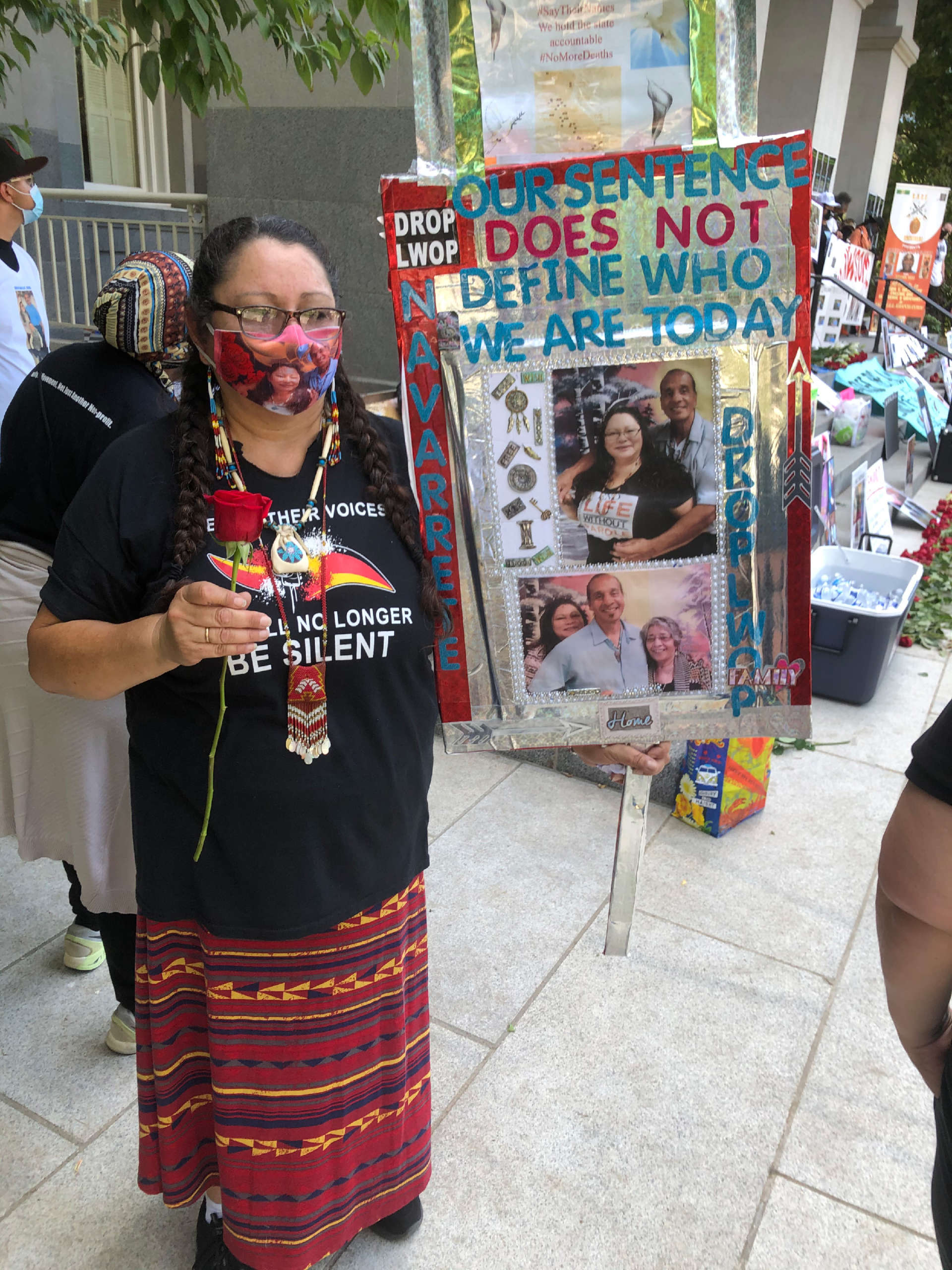
In 2020, Navarrete filed a one-page recertification with Gov. Gavin Newsom’s office. As of November 2021, Newsom has granted 91 commutations, 29 of which were to people serving life without parole. Newsom granted no clemencies in December.
In California, people serving life without parole are excluded from recent reforms such as elder parole, a law allowing prisoners aged 50 and over to appear before the parole board after serving 20 years. “Commutation is the only way they’ll be reviewed,” Yolanda said.
“Half of Me Is in There With Him”
On the campaign trail, President Joe Biden voiced his support for marijuana decriminalization. “And I think everyone — anyone who has a record should be let out of jail, their records expunged, be completely zeroed out,” he said during a 2019 presidential debate.
Two years later, people in federal prisons are still waiting for him to fulfill that promise.
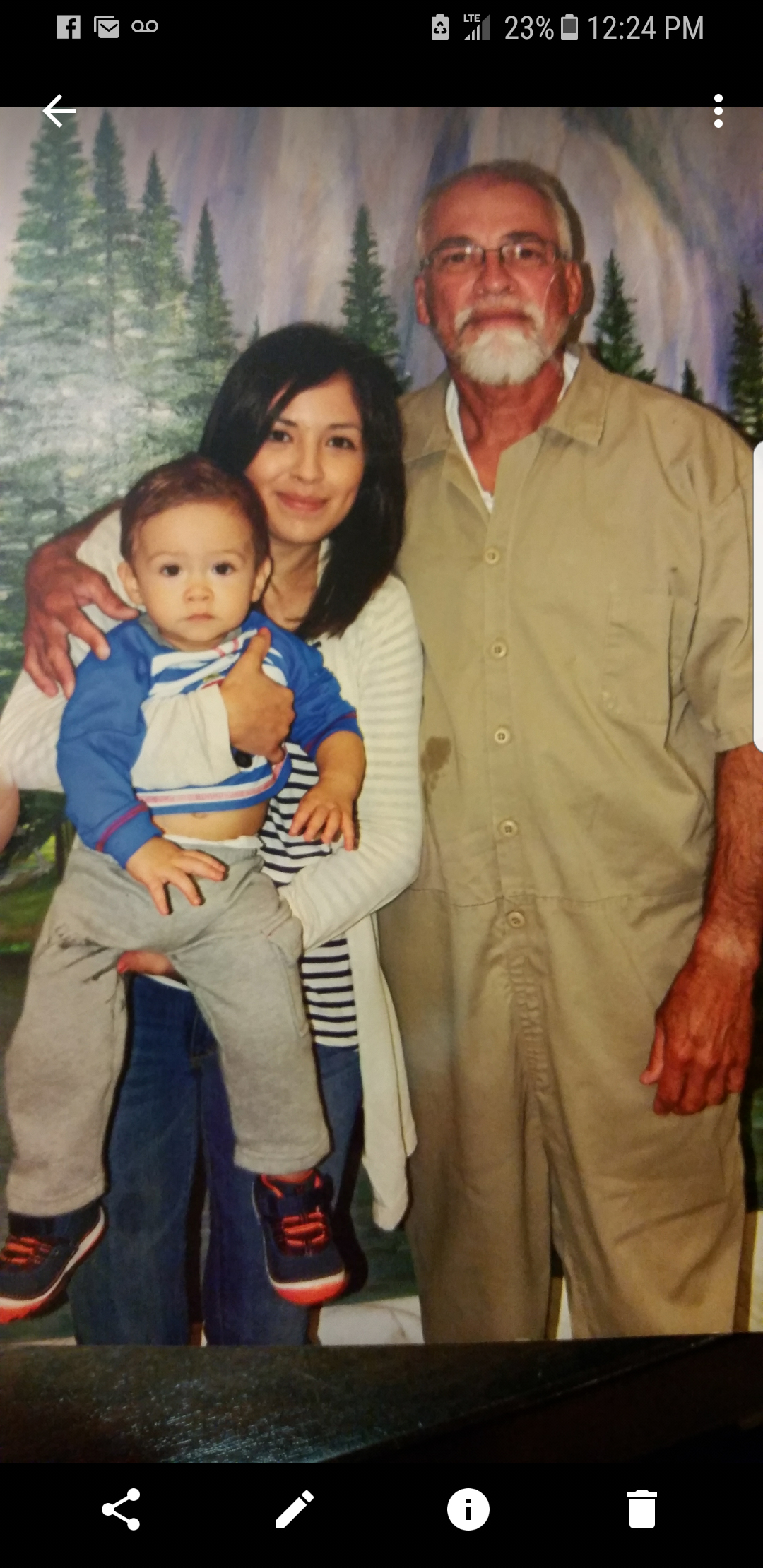
Pedro Moreno has spent the past 25 years in federal prison. Sentenced to life, clemency may be the only way the 61-year-old can rejoin his family.
“I feel like I’m doing this sentence with my dad. Half of me is in there with him,” Alejandra Moreno Lopez told Truthout.
Alejandra Moreno Lopez was eight when federal officers burst into the family’s Texas home.
The officers, dressed head to toe in black, allowed her mother, Melba, to get dressed and dress her three children. She tied her daughter’s hair into a ponytail — the last one Lopez would wear during her childhood — and told them she’d be back soon. “We waited for her all day,” Lopez told Truthout. Her mother didn’t return for 13 years.
Melba and her husband Pedro were arrested as part of a 79-person federal marijuana sting. Pedro Moreno was charged with transporting thousands of kilos of marijuana from Mexico into the United States. Two years later, in 1998, Moreno pled guilty to conspiracy to launder monetary instruments and operating a continuing illegal enterprise. In return, the government agreed to dismiss the remaining charges and not oppose a sentence reduction.
Before sentencing in federal courts, the probation officer submits a presentence report (PSR), which guides the judge in sentencing. Pedro Moreno’s PSR recommended adding two points for obstruction of justice and no points for accepting responsibility. Those points increased his sentence guideline range from 324 to 405 months (27 to 34.75 years) to life in prison. Four of Moreno’s brothers were also sentenced to life in federal prison.
Twenty-five years after that fateful morning, Pedro Moreno remains in prison. In January 2016, then-President Barack Obama granted clemency to Moreno’s four brothers. Eight months later, he denied Moreno’s application. He remains the last family member imprisoned from that sting.
In 2010, Moreno’s wife, Melba, was released from prison. The next month, she saw her daughter graduate from college. “She always said she’d get out to see us and be a mom again,” Lopez recalled. But their time together ended the following year when Melba died after a brain aneurysm.

Moreno is held at the federal prison in Atwater, California, nearly 2,000 miles from his family in Texas. To visit, Lopez must drive an hour to the nearest airport, fly to San Francisco, rent a car and then drive two to three hours to Atwater.
The last time she visited was in 2018. She brought her husband as well as their 3-year-old son and 11-month-old granddaughter. They stayed for an extended weekend — Thursday through Monday — to visit several days in a row. But, remarks Lopez, “It’s never a vacation. It’s in the middle of nowhere.”
Unlike other prisons, Atwater does not offer video calling, so Lopez and her family rely on phone calls. She worries that her father will contract severe COVID. At the start of the pandemic, he and other men came down with flu-like symptoms, some so severe that they couldn’t get out of bed. For a time, he lost his voice and couldn’t call.
In December 2020, he tested positive for COVID. “We were afraid he could get very sick,” Lopez said. The previous month, both his sister and brother-in-law contracted COVID and died within days of each other.
Lopez doesn’t understand why her father was denied clemency. “Now [marijuana] is legal in a lot of states. I don’t understand why there are still people in prison over this,” she said. “And [their] families are hurting.”
A Christmas Without the Looming Threat of Prison
Diana Marquez is looking forward to her second Christmas with her family in their El Paso home. She and her three grandsons have already decorated the Christmas tree in their living room. She is planning to cook a turkey and watch the boys open their presents on Christmas morning. She can FaceTime her 92-year-old mother and oldest daughter, both in Nebraska, to wish them a merry Christmas. But the best Christmas gift was learning that she would not be returned to prison.

The 65-year-old was released in May 2020 under the Coronavirus AID, Relief and Economic Security (CARES) Act, which prioritized the temporary release of people from federal prison if their age or health made them vulnerable to COVID and whose convictions are classified as nonviolent.
While she is now home with her daughter and grandsons, Marquez remains under home confinement and electronic monitoring. She has permission to leave the house for two hours each morning to walk in the nearby park and to pick her grandchildren up from school every weekday afternoon. Any other movement outside of her daughter’s home requires advanced approval and even then, she may not receive it. She cannot attend church services or spontaneously stop at a store. She cannot travel to see her mother or older children.
Until recently, she lived with the threat of being returned to prison after the pandemic ends. As Truthout previously reported, the Biden administration is upholding a last-minute memo issued by Trump’s Justice Department returning people to prison if their sentences extend beyond the “pandemic emergency period.” Marquez has more than nine years left on her prison sentence.
On December 21, under ongoing pressure from advocates, including formerly incarcerated people, the Justice Department reversed its stance, issuing a new legal opinion that would allow people like Marquez to serve the rest of their sentence at home. “I feel overwhelmed, so excited [and happy,” Marquez told Truthout. “[I’m] having tears of joy to know we don’t have to go back to prison.”
Marquez applied for clemency in 2016 while still in prison; it was denied the following year. In September 2021, she applied again.
“It would be a really big blessing,” she said. Clemency would also allow her to travel to Nebraska and hug her mother. Without clemency, Marquez will remain under the same restrictions until her sentence ends in 2031.
In September 2021, Marquez learned that the Biden administration, which has yet to grant any clemencies, is conducting an expedited clemency screening for people with nonviolent drug convictions on home confinement under the CARES Act. The screening only applies to those who have between 18 and 48 months remaining on their sentence. Marquez, whose release date is March 9, 2031, does not qualify. As of December 2021, Biden granted no clemencies.
That leaves Marquez to wait and hope. “I’m praying and praying for clemency — not just for me, but for all of us, both on home confinement and still in prison,” she said.
UPDATE: On December 28, 2021, a federal judge granted Diana Marquez’s application for compassionate release. She no longer faces the threat of being returned to prison.
This article was updated on January 4 to acknowledge that New York Gov. Kathy Hochul granted one commutation, while California Gov. Gavin Newsom and President Joe Biden granted no clemencies in December.
A terrifying moment. We appeal for your support.
In the last weeks, we have witnessed an authoritarian assault on communities in Minnesota and across the nation.
The need for truthful, grassroots reporting is urgent at this cataclysmic historical moment. Yet, Trump-aligned billionaires and other allies have taken over many legacy media outlets — the culmination of a decades-long campaign to place control of the narrative into the hands of the political right.
We refuse to let Trump’s blatant propaganda machine go unchecked. Untethered to corporate ownership or advertisers, Truthout remains fearless in our reporting and our determination to use journalism as a tool for justice.
But we need your help just to fund our basic expenses. Over 80 percent of Truthout’s funding comes from small individual donations from our community of readers, and over a third of our total budget is supported by recurring monthly donors.
Truthout has launched a fundraiser, and we have a goal to add 182 new monthly donors in the next 24 hours. Whether you can make a small monthly donation or a larger one-time gift, Truthout only works with your support.
